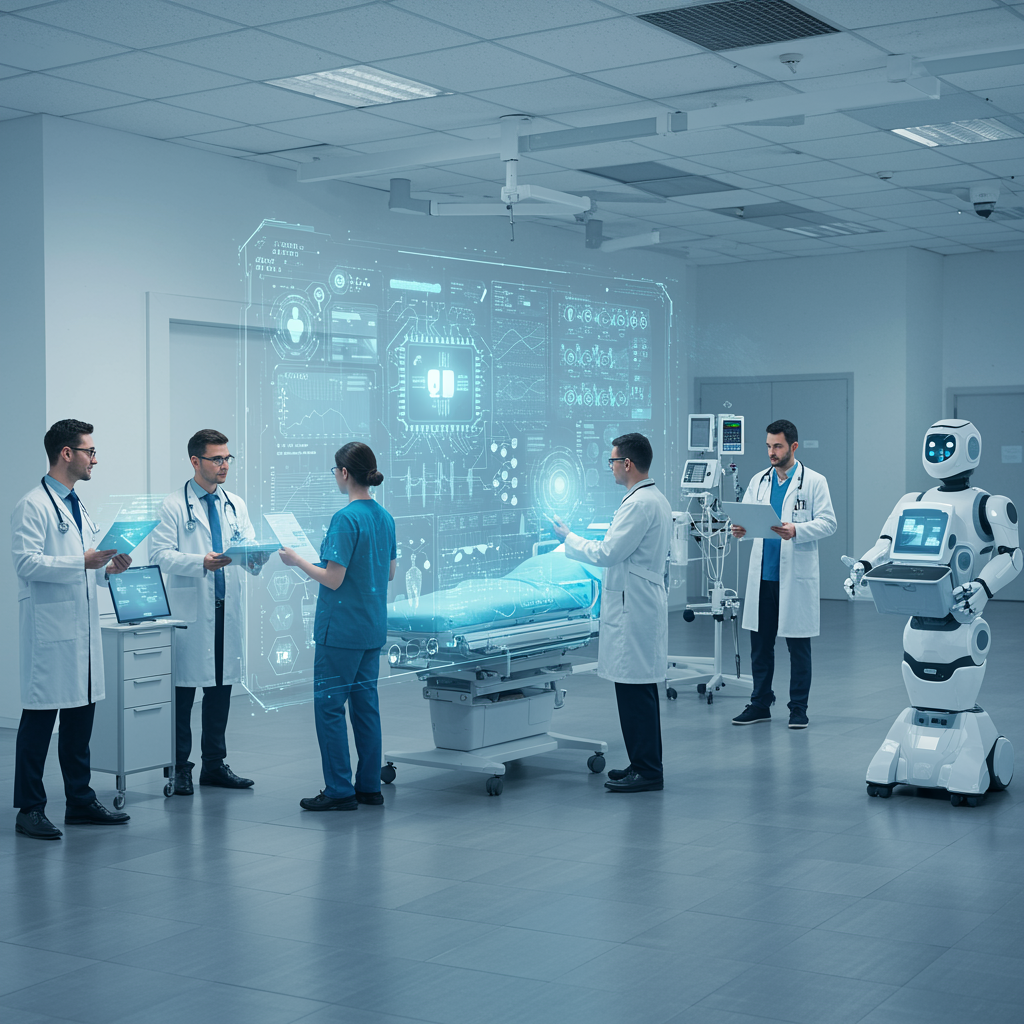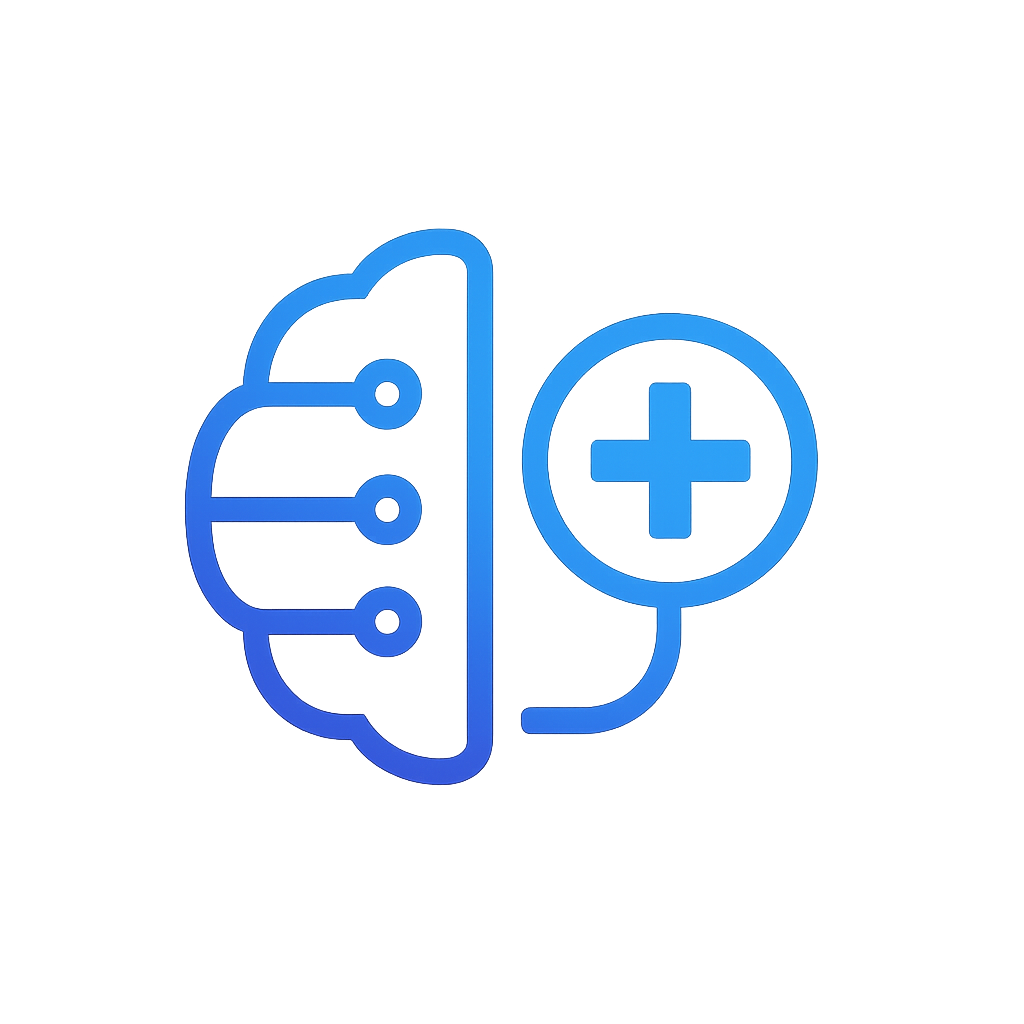Introduction to Healthcare AI: A Guide for Tech Professionals

The intersection of artificial intelligence and healthcare represents one of the most promising and rapidly evolving areas in modern medicine. For tech professionals looking to transition into this field, understanding the unique challenges and opportunities is crucial.
Why Healthcare AI?
The healthcare industry is experiencing a digital transformation, with AI playing a pivotal role. The field offers tech professionals a unique opportunity to make a meaningful impact by directly contributing to improved patient outcomes and saving lives. As healthcare organizations increasingly seek AI expertise, the demand for skilled professionals continues to grow. The complex challenges in healthcare AI provide intellectually stimulating problems to solve, while offering significant opportunities for professional development and advancement.
Key Areas of Application
Medical Imaging Analysis
Medical imaging analysis represents one of the most successful applications of AI in healthcare. Deep learning models can detect abnormalities in X-rays, MRIs, and CT scans with remarkable accuracy. Modern systems use convolutional neural networks (CNNs) for tasks like tumor detection, fracture identification, and disease progression monitoring. These systems are revolutionizing diagnostic processes, enabling earlier detection of conditions and supporting healthcare providers in making more accurate diagnoses.
Electronic Health Records (EHR)
Natural Language Processing (NLP) is transforming how we handle patient records. Advanced AI systems can now automatically categorize medical documents, extract relevant data from clinical notes, and provide real-time insights to healthcare providers. This automation not only saves valuable time but also reduces errors and improves the quality of patient care. By analyzing vast amounts of historical data, these systems can identify patterns and correlations that might otherwise go unnoticed.
Predictive Analytics
The power of predictive analytics in healthcare extends far beyond basic data analysis. AI systems can now forecast patient outcomes, assess readmission risks, and predict treatment responses with increasing accuracy. By analyzing complex patterns in patient data, these systems help healthcare providers make more informed decisions about treatment plans and interventions. This proactive approach to healthcare management has shown promising results in improving patient outcomes while optimizing resource allocation.
Getting Started in Healthcare AI
Building a strong foundation in healthcare AI requires a multifaceted approach. Start by mastering machine learning fundamentals while simultaneously developing your understanding of healthcare domain knowledge. Familiarize yourself with medical data privacy regulations, particularly HIPAA compliance, as this knowledge is crucial for working with sensitive patient data.
Practical experience is invaluable in this field. Consider contributing to open-source healthcare projects, which provide hands-on experience while allowing you to build a portfolio. Medical AI competitions offer opportunities to solve real-world problems and benchmark your skills against industry standards. These experiences not only enhance your technical abilities but also demonstrate your commitment to potential employers.
Networking plays a crucial role in professional development. Join healthcare AI communities, attend medical informatics conferences, and connect with healthcare professionals. These interactions provide insights into industry trends, job opportunities, and the practical challenges faced by healthcare providers. The relationships you build can lead to mentorship opportunities and collaborative projects.
Challenges and Considerations
Working in healthcare AI presents unique challenges that require careful consideration. Data privacy regulations are particularly stringent, requiring robust security measures and careful handling of sensitive patient information. The need for explainable AI solutions is paramount, as healthcare providers must understand and trust the recommendations made by AI systems.
Integration with existing healthcare systems presents another significant challenge. Healthcare facilities often use complex, interconnected systems that have evolved over decades. New AI solutions must seamlessly integrate with these existing workflows while maintaining reliability and performance. Additionally, the validation process for healthcare AI systems is rigorous, requiring extensive testing and compliance with regulatory requirements.
Future Trends
The future of healthcare AI is evolving rapidly, with several promising developments on the horizon. Federated learning is emerging as a solution to data privacy concerns, allowing models to be trained across distributed datasets while maintaining patient confidentiality. Edge computing is bringing AI capabilities directly to medical devices, enabling real-time analysis and faster decision-making at the point of care.
The integration of multiple data types through multimodal learning is opening new possibilities for comprehensive patient care. By combining various forms of medical data, AI systems can provide more accurate and nuanced insights. Perhaps most exciting is the advancement of personalized medicine, where AI-driven systems can recommend treatments tailored to individual patient profiles, considering their unique genetic makeup, medical history, and lifestyle factors.
Essential Resources
Success in healthcare AI requires a combination of technical expertise and domain knowledge. Focus on developing your skills in Python programming, particularly with healthcare-specific libraries, and gain proficiency in machine learning frameworks like TensorFlow and PyTorch. Understanding medical data formats and standards is equally important for working effectively with healthcare systems.
Invest time in learning basic medical terminology and understanding healthcare workflows. This knowledge will help you communicate effectively with healthcare professionals and design solutions that address real clinical needs. Stay current with regulatory requirements and industry standards, as these form the framework within which healthcare AI solutions must operate.
For a more structured approach to entering the healthcare AI field, consider exploring our Career Development resources. Our comprehensive platform offers exclusive benefits for subscribers, including:
Access to in-depth technical workshops led by industry experts, specialized healthcare AI courses, and a curated collection of real-world case studies. Subscribers also gain access to our mentorship network, connecting you with experienced professionals who can guide your transition into healthcare AI. Additionally, our job board features exclusive positions from leading healthcare organizations actively seeking AI talent.
Conclusion
The field of healthcare AI offers exciting opportunities for tech professionals who want to make a meaningful impact. While the learning curve may be steep, the rewards – both professional and societal – make it a compelling career choice. Success in this field comes from combining technical expertise with domain knowledge and a deep understanding of healthcare workflows.
